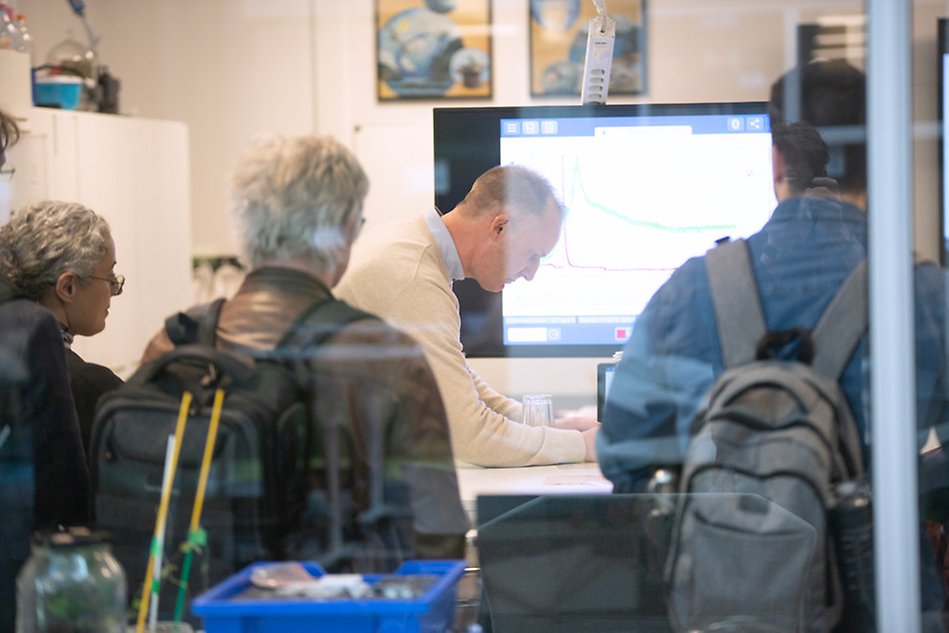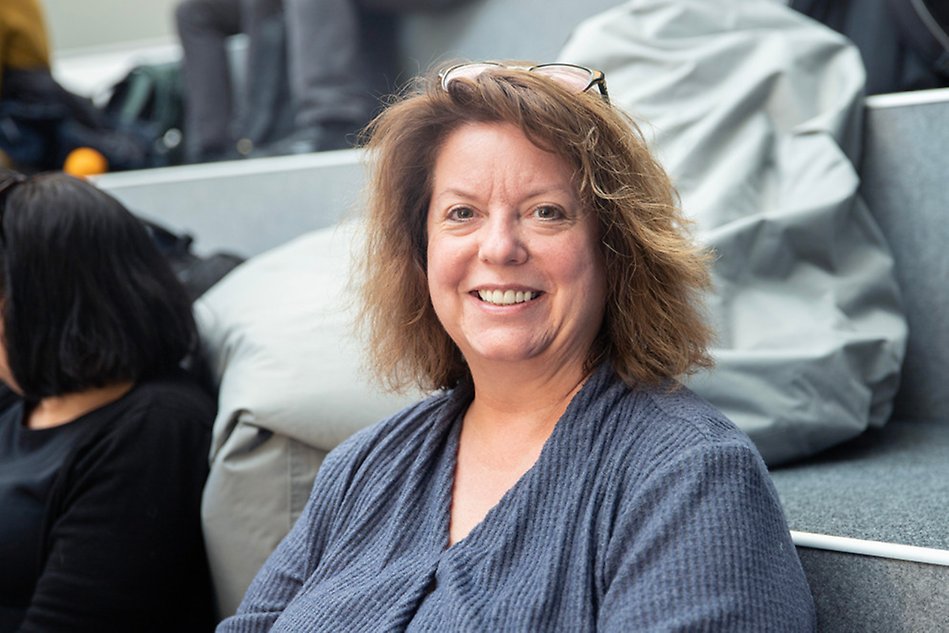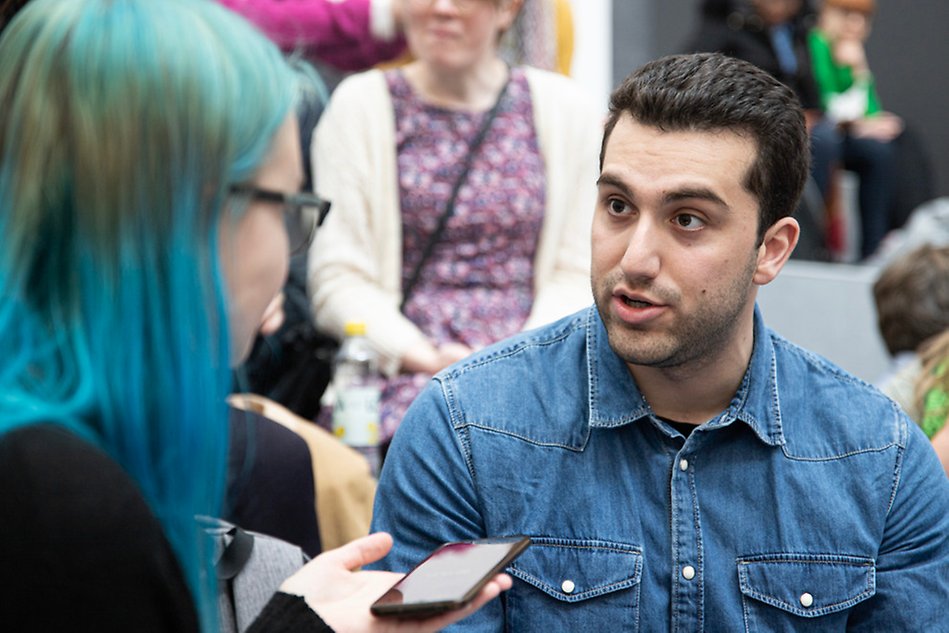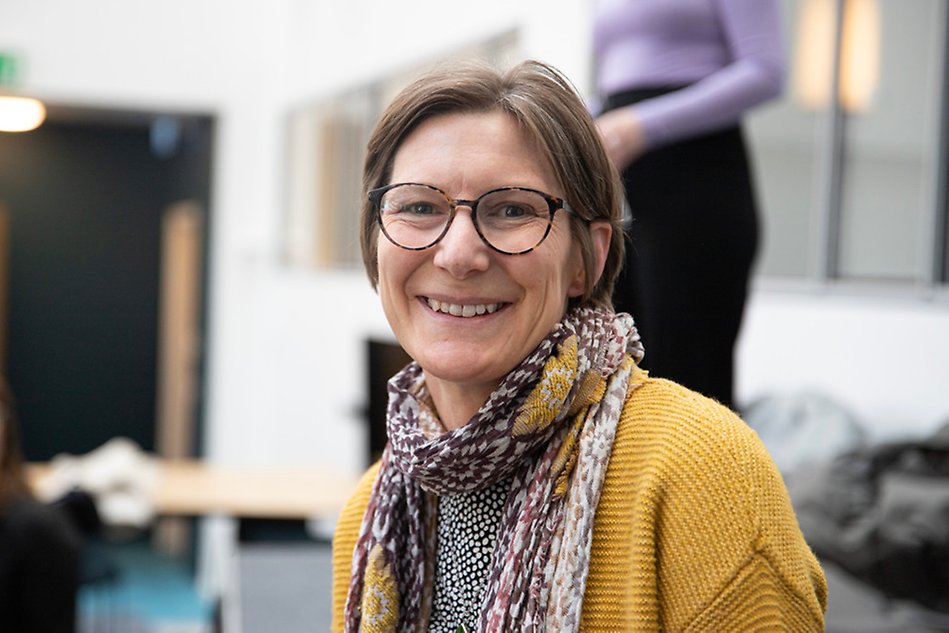The University hosts an international symposium in digital learning
At the end of April, Halmstad University was visited by national and international researchers in the field of digital learning. The symposium, which was part of the graduate school network GRADE Research, aimed to expand and re-innovate current critical theorising of information and communications technology in education and learning.
"This conference is positive for LeaDS as it contributes to the research programme's goal of serving as a national arena for research in learning and digitalisation."
Pernilla Nilsson, Professor in Science Education
The symposium, which was attended by several well-known speakers in the field, inspired to develop critical thinking and critical theoretical research in connection to the development of digital technology. The panel discussions tied the days together and opened up for discussion and questions.

During the conference, the participants were given a tour of DLC's various lab environments.
The advancement of technology
“There is a constant inflow of new technology, and calls for caution are something that has been particularly visible this year. The advancement of technology puts pressure on education and on the teacher’s skills. Education is a sector that is not only affected by digitalisation but is also an important part of preparing citizens to use and participate in the digital society in an informed and democratic way,” says Pernilla Nilsson, Professor in Science Education and host of the conference.
Learning about learning
Jennifer Richardson, Professor of Learning Design and Technology at Purdue University in the United States, was one of the keynote speakers. She shared theories and held a discussion with the symposium participants about their opportunities to develop and participate in research.
“It has been interesting to learn about Sweden's higher education system and how it differs from the American one and how it works for the students here. I have learned a lot, not only about theories but also about how people use the theories in their work,” says Jennifer Richardson.

Jennifer Richardson, Professor in Learning Design and Technology at Purdue University in USA was one of the speakers.
Expanding perspectives
Iosif Gidiotis, PhD student in Educational and Communication Sciences at KTH Royal Institute of Technology, is one of the doctoral students in the graduate school LIKED – Learning, Interaction and Knowledge in a digitalized world, which includes Halmstad University, and it was through the graduate school that he was invited to this symposium. With him from the conference, he takes the different perspectives on theories, both old and new, that he has received:
"I saw this as a good opportunity to meet other doctoral students and to hear from experts in the field about their views on critical thinking and theorising. I will definitely try to keep more of an open mind when it comes to research, and thinking about methods, and critical thinking. I think this is one of the most important things that I will try to do in my research," says Iosif Gidiotis.

Iosif Gidiotis, PhD Student in Education and Communication science at KTH, is one of the doctoral students in the research school LIKED - Learning, interaction and knowledge in a digitalized world, which includes Halmstad University.
Opportunities to develop
The University's research programme, LeaDS – Learning in a Digital Society, has two PhD students which participate in two of the graduate schools, LIKED and UPGRADE, which are part of GRADE Research.
"It's a fantastic opportunity for PhD students. In the graduate schools, there is a great drive and the PhD students are offered to participate in a variety of activities. This conference is positive for LeaDS as it contributes to the research programme's goal of serving as a national arena for research in learning and digitalisation. It is also good to be part of a network like GRADE Research," says Pernilla Nilsson and states:
"It's a unique network of supervisors and PhD students which really positions digitalisation research in Sweden and internationally."

Johanna Velander, PhD student in Computer Science and Media Technology at Linnaeus University and part of the research school UPGRADE.
The importance of socialising
The conference was very much appreciated by the participants, and many bring with them both new perspectives and partners. Johanna Velander, PhD student in Computer Science and Media Technology at Linnaeus University and part of the graduate school UPGRADE, thinks that the conference was very rewarding:
"I have gained many ideas that have emerged during the activities and discussions. Then you also bring with you memories and contacts that you made."
Text: Linnéa Kankaala
Photograph: Dan Bergmark


